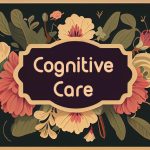Touch is a fundamental aspect of human connection and communication. It transcends words, conveying comfort, reassurance, and love in ways that verbal communication often cannot.
For individuals with dementia, a condition that impairs memory and cognitive function, the importance of touch becomes even more pronounced. Holding hands, in particular, serves as a powerful form of non-verbal communication that offers numerous benefits for both the person with dementia and their caregivers.
 The Power of Touch: Emotional Reassurance and Connection
The Power of Touch: Emotional Reassurance and Connection
One of the most significant benefits of holding hands with a person with dementia is the emotional reassurance it provides.
Dementia can be a frightening and confusing experience, often leading to feelings of isolation and anxiety. The simple act of holding hands can offer a sense of security and connection.
According to a study published in the Journal of Clinical Nursing, physical touch can reduce feelings of anxiety and agitation in dementia patients, promoting a sense of calm and well-being.
“I might lose the words, but holding your hand tells me I’m safe, even if I don’t always understand why.”
Non-Verbal Communication
As dementia progresses, verbal communication can become increasingly challenging. Holding hands offers a way to communicate care and presence without the need for words. It tells the person with dementia that they are not alone and that someone cares for them deeply. This form of non-verbal communication can be particularly comforting in moments of confusion or distress, providing a consistent source of support.
Reducing Behavioral Symptoms
Physical touch, including holding hands, has been shown to reduce behavioral symptoms associated with dementia, such as agitation and aggression. A study in the American Journal of Alzheimer’s Disease & Other Dementias found that tactile stimulation can lead to significant improvements in mood and behavior in individuals with dementia. This can make caregiving less stressful and enhance the quality of life for both the person with dementia and their caregivers.
“The touch of your hand keeps our shared past alive in my heart, even when my mind lets it slip away.”
Promoting Physical Health
The benefits of touch extend beyond emotional and psychological well-being. Physical contact, such as holding hands, can also promote physical health. It can lower blood pressure, reduce stress levels, and even boost the immune system. The Touch Research Institute at the University of Miami has conducted extensive research on the health benefits of touch, demonstrating its positive impact on both mental and physical health.
Strengthening Bonds
For family members and caregivers, holding hands can also strengthen the emotional bond with their loved one who has dementia. It is a simple yet profound way to express love and support. This physical connection can be a source of comfort for caregivers as well, providing them with a tangible way to show their care and affection.
“With your hand in mine, I never feel lost, even as I lose my way.”
Practical Tips for Caregivers
While holding hands can be beneficial, it is important to approach this form of touch with sensitivity. Here are some practical tips for caregivers:
- Gauge Comfort Levels: Always ensure that the person with dementia is comfortable with physical touch. Some individuals may be more receptive than others.
- Be Gentle: Use a gentle touch to convey warmth and safety. Avoid any sudden or forceful movements.
- Create a Calm Environment: Hold hands in a calm and quiet environment to maximize the soothing effects of touch.
- Combine with Verbal Reassurance: While holding hands, offer verbal reassurance and speak in a soothing tone to enhance the calming effect.
The simple act of holding hands can have a profound impact on individuals with dementia. It provides emotional reassurance, facilitates non-verbal communication, reduces behavioral symptoms, promotes physical health, and strengthens bonds.
For care partners, family members, and other loved ones, holding hands is a powerful tool to convey love and support, making the challenging journey of dementia a little bit easier to navigate. “With each gentle squeeze, I remind you that even if the world feels distant, my love is here, steady and unchanging.”
Visiting a loved one with dementia?
Don’t forget to sign up for our newsletter and download your free copy of ‘30 Practical Tips for Meaningful and Positive Family Visits’





